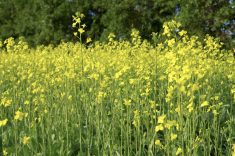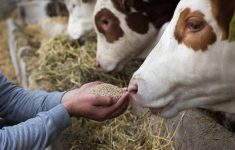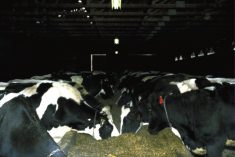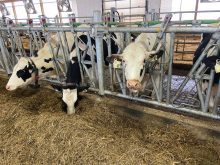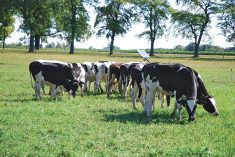One of Western Canada’s leading grain quality testers says early harvest samples are showing a high risk this year for potential feed quality issues.
Canadian Bio-Systems, of Calgary, is advising livestock operations and feed mills to take steps to safeguard feed quality and livestock performance.
“The risk of feed grain quality issues that can affect livestock performance is quite high this year,” Rob Patterson, technical director for Canadian Bio-Systems said in a news release. “That’s no surprise with the type of growing season it has been across the Prairies. In many areas it has been very wet with high disease pressure and high risk of mycotoxins, mould and other issues. We are now seeing the risk confirmed in reports from across the region, based on analysis of early-harvest grain samples.
Read Also

Farmer mental health support extended in Manitoba
The Manitoba Farmer Wellness Program is slated for $300,000 over the next two years for its farm mental health services
“It’s a year when livestock operations and feed mills will want to be even more diligent than normal in taking the right steps to safeguard the quality of feed and the performance of livestock consuming the feed.”
A good starting point is to send in feed grain samples for analysis, said Patterson. Testing can identify the presence and level of mycotoxins and other contaminants.
“Once you know what you’re dealing with you can take the steps needed to avoid any issues,” he said.




